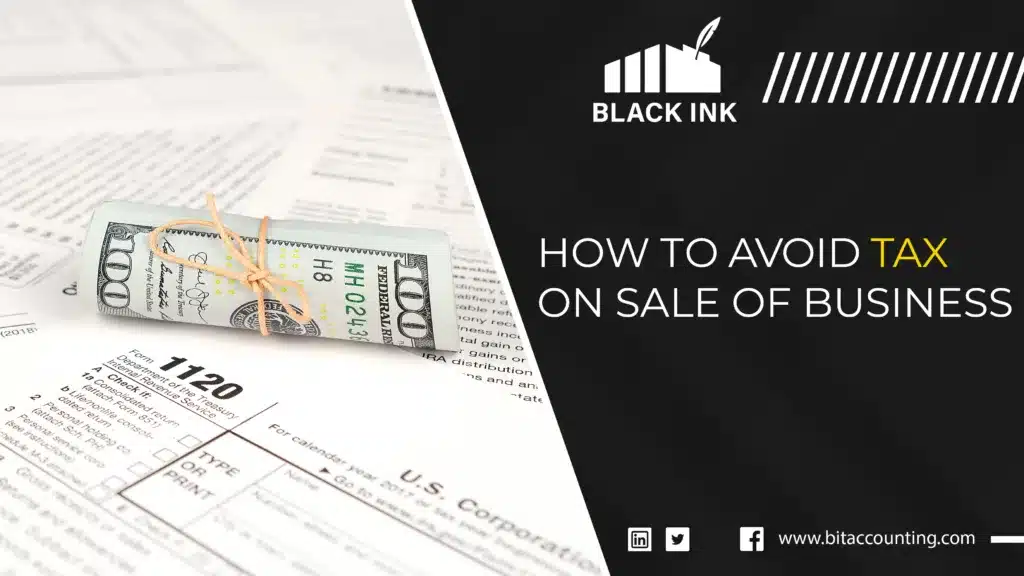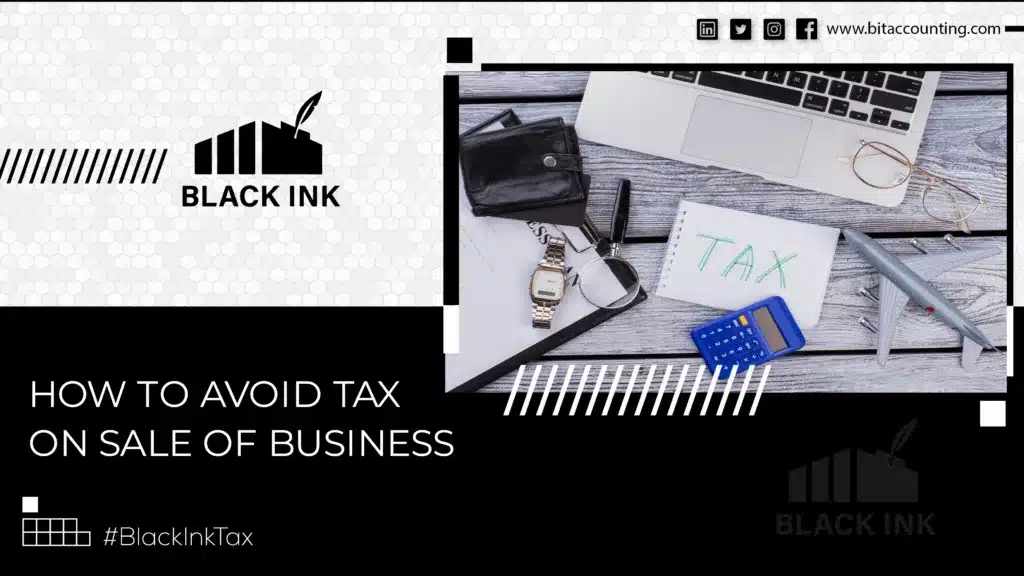
Table of Contents
How to Avoid Tax on Sale of Business: Guide for Business Owners
When you’re selling a business, the last thing you want is to see a huge chunk of your hard-earned money eaten up by taxes. The process isn’t just about transferring ownership — it’s about maximizing your profits and minimizing tax liability. So, how to avoid tax on sale of business? Well, with the right strategies, a good tax advisor, and proactive tax planning, it’s absolutely possible to soften the blow.
In this detailed guide, we’ll break down major and minor tax-saving strategies business owners can use, from Qualified Small Business Stock (QSBS) exclusions to installment sales and 1031 exchanges — with a clear roadmap to securing your financial future.
Why Do Taxes Matter When Selling a Business?
Whenever you’re selling a business, you’ll trigger taxable events — and these could fall under capital gains tax, state taxes, local taxes, or a combination of these. The actual tax burden depends on your business structure (whether you own a C-corp, S-corp, LLC, partnership, or sole proprietorship), the allocation of purchase price, and how the deal is structured — either as a stock sale or an asset sale.
Capital gains tax can range from 0% to 37% based on the holding period, tax basis, state taxes, and the nature of your business assets. But smart planning lets you navigate this maze while keeping more money in your pocket.
Top Tax-Saving Strategies When Selling a Business
Let’s break down the practical ways you can reduce, defer, or even eliminate taxes when selling your business.
1. Sell Qualified Small Business Stock (QSBS)
If your business qualifies under Section 1202 of the Internal Revenue Code, you can exclude up to 100% of capital gains from the sale of your Qualified Small Business Stock (QSBS).
Requirements include:
- A holding period of over five years.
- The stock must be originally issued after August 10, 1993.
- The business must meet the Active Business Requirement (80% of assets actively used in operations).
Pro Tip: Engage a tax advisor or accountant early to check your eligibility and optimize your QSBS benefits.
2. Structure the Deal as an Installment Sale
An installment sale allows you to spread out the tax burden over multiple years, paying taxes as you receive the proceeds. This can push you into a lower capital gains tax bracket and defer taxes, enhancing tax efficiency.
Benefits:
- Manage cash flow and tax liability gradually.
- Optimize long–term capital gains rates.
3. Explore a 1031 Exchange (Like-Kind Exchange)
Though 1031 exchanges are less common for business sales mostly used for real estate, it’s still possible if you’re selling qualified business property and reinvesting the proceeds into similar property.
Caveats:
- The properties must be “like-kind.”
- Tight timelines for reinvestment.
- Complex IRS regulations — professional advice is essential.
4. Use Earn-Outs for Tax Deferral
An earn-out involves receiving part of the payment based on future business performance. This structure delays some of the capital gains until those payments are received, deferring tax liabilities and providing flexibility.
Pros:
- Reduces immediate taxable income.
- Allows better tax planning with future payouts.

5. Charitable Contributions or Conservation Easements
If you’re charitably inclined, donating part of your business (or the proceeds) to a charity or establishing a conservation easement can yield significant tax deductions, minimizing taxable gains.
Examples:
- Donate appreciated stock before a sale.
- Gift assets to a charitable remainder trust (CRT).
6. Reinvest Proceeds in Opportunity Zones
By investing your sale proceeds into Qualified Opportunity Zones, you can defer and potentially reduce capital gains tax.
Benefits:
- Tax deferral on gains until 2026.
- Up to 10–15% exclusion of gains held for 5–7 years.
- No tax on appreciation if held for over 10 years.
7. Plan with Business Valuation and Asset Allocation
How you allocate the purchase price among goodwill, tangible assets, inventory, non-compete agreements, and consulting agreements greatly affects your tax liability. Certain categories may be taxed at ordinary income rates, while others qualify for capital gains treatment.
Action Step: Get a fair and formal business valuation early on.
Common Mistakes to Avoid When Selling a Business
While tax-saving strategies are abundant, it’s easy to make costly mistakes. Here’s what you need to watch out for:
- Commingling personal expenses with business accounts — which could risk piercing the corporate veil and increase legal liability.
- Ignoring state taxes and local tax implications.
- Failing to work with an experienced tax advisor or legal professional.
- Misjudging the value of your goodwill and intangible assets.
Case Study: Saving $400,000 in Taxes Using Installment Sale and QSBS
A client running a software company (C-corp) qualified for QSBS exclusion but still had taxable assets. By using an installment sale structure and rolling over some of the proceeds into Qualified Opportunity Zones, they deferred over $400,000 in taxes while maximizing gains.
Bonus Resources and Formulas
Capital Gains Tax Formula:
Capital Gain = Sale Price – Tax Basis
Capital Gains Tax = Capital Gain × Applicable Rate
Tax Saving Tip:
- Combine QSBS exclusions with installment sales for maximum benefits.
Useful Resources:
FAQ Section
1: What is the difference between a stock sale and an asset sale?
A stock sale involves selling ownership shares of the company, while an asset sale involves selling individual business assets. Tax consequences differ based on structure.
2: Can I avoid capital gains taxes completely?
Yes — using strategies like QSBS, Opportunity Zones, and charitable contributions may eliminate or reduce taxes.
3: What is a stepped-up basis?
In estate planning, the stepped-up basis adjusts the value of inherited business assets to fair market value, reducing capital gains upon sale.
4: How does an earn-out impact my taxes?
Earn-outs spread payments across multiple years, deferring tax liabilities to when payments are received.
5: Should I get a formal business valuation?
Yes — it’s essential for fair purchase price allocation and minimizing disputes with the IRS.
Conclusion
Selling a business is as much about strategic tax planning as it is about the sale itself. The good news is that with methods like QSBS exclusions, installment sales, 1031 exchanges, and Opportunity Zone reinvestments, you can significantly reduce or defer your tax liability.
Partnering with the right tax advisor, leveraging legal advice, and ensuring proper financial record keeping is the smartest path forward. And for even deeper insights, visit the expert resources at BitAccounting’s Tax Blog.
GET FREE QUOTE FOR ALL OF OUR SERVICES
Black Ink will send you a free analysis of your current state and what would be the cost of managing either a separate accounting and bookkeeping services or a complete solution across New York, USA. Do get in touch and we will be happy to consult you with our bookkeeping services in NY, New York, USA.
